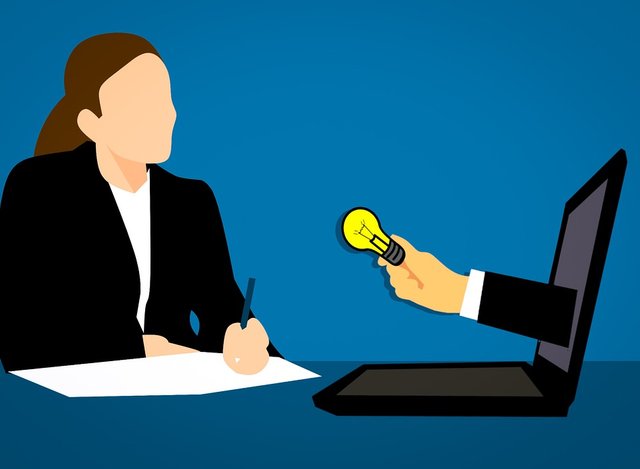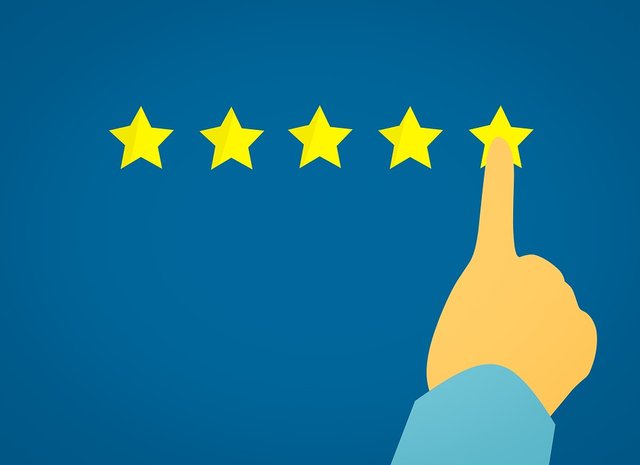What is Online Psychotherapy And How to Benefit From it ?

This post builds up on my previous article about Understanding Psychotherapy: A Brief Introduction. If you have missed it, I suggest to read it before continuing with this one.
Introduction
Today I would like to talk about an interesting development of the psychotherapy, which is gaining more and more popularity – online psychotherapy. Let’s see why.
Telepsychology – Online Psychotherapy
The concept of conducting a therapy from a distance is not something new. Even Doctor S. Freud, the father of psychoanalysis was communicating with some of his patients with letters. Psychotherapy by the phone is a popular idea in the USA and has been practiced for decades. A therapy which is not conducted traditionally, face-to-face, but rather electronically is know by many names. In 2001 the American Psychological Association adopts the term “online therapy”. Telepsychology or teletherapy are other names of the same thing – online psychotherapy. Usually, online psychotherapy is conducted as part of the psychotherapist’s private practice, without institutional supervision or standardization. The patient (or the client) is in a different setting than the therapist – typically at home, work or travelling.

Why you should choose online psychotherapy over face-to-face psychotherapy?
Perhaps one of the best arguments in support of the online psychotherapy is when you have the need to be in therapy but you cannot afford a traditional psychotherapy or it’s physically impossible for you to be engaged in such activity.
In addition to that it may be the better option for you if you have some difficulties or fears meeting a psychotherapist in person. Due to all the misconceptions and confusion about this topic, some people feel ashamed of even thinking about going in therapy. Imagine how such person would feel when actually executing the action. Being behind a keyboard or another device somehow gives security and feeling of being anonymous. To some people it’s enough to give them strength and courage to face their problems and actually talk about them with an outside person. Even if that’s not the case with you and you are just having some second thoughts about going in person, signing for online psychotherapy might be more beneficial for you. Let’s discuss some of the advantages and disadvantages that come with online psychotherapy.

Advantages
It can be convenient
Of course, the main idea of online psychotherapy is that you can work with a therapist of your choice online, instead of traveling at arranged hour to their office. In addition to that you can contact your therapist from wherever you are – traveling, or at home, surrounded by familiar and hopefully friendly environment to you.
In this manner, online psychotherapy could be beneficial for the experts as well, providing them an opportunity to save time, earn more and at the same find balance between their professional and personal life.
Online communication might be more beneficial for many people
With today’s advancement technologies, devices and various applications for instant connections with others, it’s common for many people to communicate online through chats, video calls, mails etc. ( especially if the person is a teenager or younger adult). Following this thought, it could be suggested that today some people might prefer online communication than in-person and therefore the therapy could be more effective for them, if it’s done online.
It can be less expensive compared to traditional in-person psychotherapy
Different online psychotherapy apps and platforms are offering different types of services (chats, mails, talks, video-chats, etc.) with different programs. Meaning that the price you will be charged, could be regulated by the type of service you would like to use and whether you pay per session, week or month. Of course, same as in-person psychotherapy, the different experts have different prices, so it’s up to you to choose what would fit best for yourself.
Of course, if you have the option to choose online psychotherapy over traditional one, when both are practical options, the disadvantages would be harder for both you and your therapist.

Disadvantages
Identity
Being physically absent could be harmful for the therapeutic process. If the online therapy is not done with video, both sides could never know to whom they are talking really to. As we’ve already discussed in the previous article, psychotherapy is all about the dialogue and relationship between you and the therapist. Additionally, not being in the same room with their client could be a problem if he or she is a child and has no permission from his or her parents to sign up for psychotherapy.
License and qualifications
Of course, everybody would like the best expert they can offer. All of the apps and platforms for online psychotherapy claim that they offer a licensed expert, but is that true? Different countries and states have different conditions for qualifications. Even if the expert is qualified to practice in his or her country that doesn’t mean automatically that he or she has the proper license for your location. Remember that you always have to choose the quality over the low prices offers.
Confidentiality
Today it’s not a secret that different apps and sites “gather intelligence” on us. Facebook is selling information in order to advertise better, everything you search leaves a trail that could be traced back to you, your profile etc. In the traditional psychotherapy you have the ‘doctor-patient’ confidentiality ( or ‘psychotherapist-client’). But who would protect your information on the app that you are using, leaving chat and video history?

Efficacy and Effectiveness of online psychotherapy
As I previously mentioned, in psychology, the words “efficacy” and “effectiveness” are related to two different types of research studies. Effectiveness studies are done to provide external validity, such as measuring outcomes in real-world clinical settings, while efficacy studies are done do provide internal validity via the utilization of a carefully controlled setting and randomized treatment and control groups. Taken together, these paradigms play an important role in determining the overall picture of a new—and occasionally untested—treatment method. When the outcomes are in accordance with each other, it could be said that the new treatment is valid from a clinical perspective.
While so far most researches have studied the legal and ethical norms of online psychotherapy, the efficacy and effectiveness of online psychotherapy remains less examined. In his study Psychology at a Distance: Examining the Efficacy of Online Therapy study R. Thompson researched the issue by comparing three categories of studies done on the effectiveness and efficacy of online psychotherapy: outcome-based studies, process studies and self-report studies. He suggests that online therapy appears to be clinically efficacious.
According to process studies, the fact that the psychotherapy is online with different environment and distance, does not affect the working alliance. However, the survey research results suggest that clients and therapists are giving opposite opinions on the topic. While most clients give positive feedback about their treatment, psychotherapists have expressed their concerns on different limitations for example failing to analyze the non-verbal behavior of their patients.
A study conducted by University of California in Berkeley suggests that people who used online psychotherapy had broad improvements in their mental health and general well-being. In addition to that, in the past decade several studies reveal that online psychotherapy is as much as effective as face-to-face therapy.
While most of them have examined the issue in video-chat and telehealth modality, several others studied the asynchronous messaging psychotherapy and the results show that it could be as much effective as the traditional psychotherapy.

Final Thoughts
While for sure there’s still a lot to learn about online psychotherapy in order to have solid facts and knowledge on this topic, I personally think that it would be interesting to see if there are any differences in the efficacy and effectiveness with the different psychotherapy perspectives. For example, is there a difference between the online CBT and online psychoanalysis and other methods? How well does online psychotherapy treat people with more serious disorders?
As for the choice between traditional and online psychotherapy, I would go with traditional psychotherapy. But if I have no other option I would gladly sign up for online psychotherapy. The results from the researches so far seem promising! What is your opinion on this subject? Please share your thoughts or experiences in the comments !


Sources:
Childress CA. Ethical Issues in Providing Online Psychotherapeutic Interventions. Journal of Medical Internet Research. 2000;2(1):e5. doi:10.2196/jmir.2.1.e5.
Thompson, Ryan Baird, "Psychology at a Distance: Examining the Efficacy of Online Therapy" (2016). University Honors Theses. Paper 285.
Pictures:
Hi my fellow,
I am not sure whether I really should give an answer because my mood is not to the best this morning. But I will try to stay as clear-headed as possible.
I tried online-consulting where I was the supporting part - that is not psychotherapy - and from the little experience I've got I would say that it's for me not the preferred form of communication. I had a skype session with screen activated on both sides and one pure text-chat on discord. I found the setup difficult. That comes probably from the fact that I use to consult in real life face to face.
People who actually are in deep despair and need breathing and feeling people around them don't do themselves a favor in NOT meeting physically.
I had a time in my life where I had a serious depression. Back then online communication made it worse. What I longed for was human contact. My pain was partly to suffer from loneliness ... or better: a strong feeling of being lost in this world.
Sometimes words and text are not enough and video chat misses also to the experience of real contact. Though that might only be my interpretation and people in need actually gained something from online therapy ...
so I only speak for myself.
There is also the danger of feeding a tendency which already I can see in the world. That is avoiding human contact.
What I find the most valid point of yours is when you don't use video you never know who is on the other side. We are far from being capable of receiving evaluable information only by text or audio. If we were all "Betazoids" like the character "Counsellor Troy" in Enterprise it would be different.
Other than that I think it is for the health insurances a "nice to offer". In my social work, I am seeing many clients who actually need therapy. To find a place is difficult because obviously mental illnesses increase and therapists are having full schedules. So coming up with online offers seems reasonable. But from my experience and professional view I would not go for it.
Hi, Erika
To be honest I am skeptical about online psychotherapy as well. If I have the choice, I would never choose it over traditional psychotherapy. In this article I tried to represent it as an alternative. As I dug for studies I was quite surprised that most of them support the hypothesis that it's effective.
Thank you for your sincere thoughts on this topic. Always appreciated :)
This is a great post, and with the ambiguous conclusions > as everything in psychology :D
I have tried a few forms of psychotherapy as a psychology student, but each one of them for short, so I am not sure if I can really compare. Here are my experiences:
So, regarding my own feeling, I think that psychotherapy face-to-face feels more intense, while video-calling feels more like 'one of the calls I do during the day'. About email counselling - I think it is fine only for short issues, some current problems, but I don't think it can really be effective and efficient. :)
Good to read a comment related to real personal experience !
Thanks so much for stopping by and sharing your thoughts !
Congratulations! This post has been upvoted from the communal account, @minnowsupport, by dysfunctional from the Minnow Support Project. It's a witness project run by aggroed, ausbitbank, teamsteem, theprophet0, someguy123, neoxian, followbtcnews, and netuoso. The goal is to help Steemit grow by supporting Minnows. Please find us at the Peace, Abundance, and Liberty Network (PALnet) Discord Channel. It's a completely public and open space to all members of the Steemit community who voluntarily choose to be there.
If you would like to delegate to the Minnow Support Project you can do so by clicking on the following links: 50SP, 100SP, 250SP, 500SP, 1000SP, 5000SP.
Be sure to leave at least 50SP undelegated on your account.
I prefer to work with my clients face to face but as I have some who are not form my city (but from all around the country), I started to offer skype consultations. I cannot use all of the techniques but I still think it is a good way to help people.